User Ideas / Prospects

The marine industry has undergone the most dramatic revolutions. Ships
formerly powered by mere sails and even steam engines currently rely on really
advanced propulsion. These systems constitute the core or backbone of
efficiencies, sustainability, and performance. Within the modernized world,
constantly evolving demands continuously challenge marine engineers to innovate
solutions.
The operation of ships relies centrally on propulsion systems. These
are what define the speed, the consumption of fuel, and environmental impact.
Due to increased trade on a global level, it has been more crucial than ever to
enhance marine propulsion systems. Engineers have targeted systems that achieve
performance with sustainability.
Conventional
Propulsion Systems
Traditionally, ships used steam engines and diesel engines. These
systems were robust and reliable. However, they came with limitations. Steam
engines consumed large amounts of coal and water. Diesel engines improved
efficiency but contributed significantly to pollution.
Over time, the systems were improved. Contemporary diesel engines
consume lesser fuel and cause fewer emissions. However, there was still room
for improvement. The marine sector was crying for innovation. Society was in
need of cleaner and efficient technologies. These developments brought forward
the latest advanced propulsion systems.
Innovative
Propulsion Solutions
1. LNG-Fuelled Engines
LNG is a cleaner fuel compared to the traditional fuels. The carbon
dioxide and sulfur oxides emitted by LNG engines are less. They are gaining
popularity in the shipping industry. The ships that run on LNG are not only
environmentally friendly but also economical in the long term.
2. Hybrid Propulsion Systems
Hybrid propulsion uses a combination of diesel engines and electric
motors. The systems are less fuel-hungry and produce fewer emissions. Hybrid
ships can run on electric power when navigating sensitive areas, such as ports.
This limits air and noise pollution.
3. Fuel Cells
Fuel cells are another innovative technology. They use hydrogen to
produce electricity. The byproduct is only water. Fuel cells are quiet,
efficient, and environmentally friendly. Many companies are exploring their use
in ships.
4. Wind-Assisted Propulsion
Wind is back in vogue for modern shipping. Advanced sails and rotor
systems can harness wind energy to reduce the fuel consumption significantly.
Though they cannot replace the engine entirely, the savings of wind-assist
technologies are tremendous.
5. Nuclear Propulsion
Nuclear propulsion is not a new concept but is gaining renewed
attention. It is used in military vessels and icebreakers. Nuclear-powered
ships can run for years without refueling. However, challenges like safety and
high costs limit their use in commercial shipping.
Benefits of
Advanced Propulsion Systems
The shift to advanced propulsion systems offers many benefits. These
include:
●
Less Pollution: The new generation of systems has
been designed in accordance with stringent environmental regulations. They
reduce greenhouse gases and other harmful pollutants.
●
Economical Efficiency: Fuel-saving engines reduce
operational costs. In the long run, this saves money for ship operators.
●
Better Performance: Advanced systems provide
better speed and maneuverability. This increases the overall performance of
ships.
●
Sustainability: The marine industry contributes
to the global sustainability agenda by embracing clean technologies.
Development
Challenges
Despite the progress, challenges remain. Advanced propulsion systems
require significant investment. Not all shipping companies can afford these
technologies. Infrastructure, such as LNG fueling stations, is still limited in
many ports. Additionally, training crew members to operate new systems takes
time and resources.
Another challenge is the balance between innovation and safety. Ships
must comply with international safety standards. Engineers must ensure that
advanced systems are reliable and secure.
Roles for Marine
Engineers
At the spearheading end, one finds the role of a marine engineer, in
charge of advanced propulsion system designing, testing, and implementations.
His is molding the face of tomorrow for the maritime industry.
A rewarding dynamic career field with ample use for creativity and
solution development. If any aspiring candidate feels an apt fit into such
roles, proper upkeep with trendy innovations should also follow.
If you are interested in Marine Engineering, then Engineers Heaven is
the place for you. Visit Engineer’s Heaven to explore resources, training
programs, and industry insights. Stay ahead in your career with the latest
updates and expert guidance.
(Disclaimer: This statistics could be different in different part of World and Different timeline. this statistics has been generated based on data available till 2025 or relavant time span.)
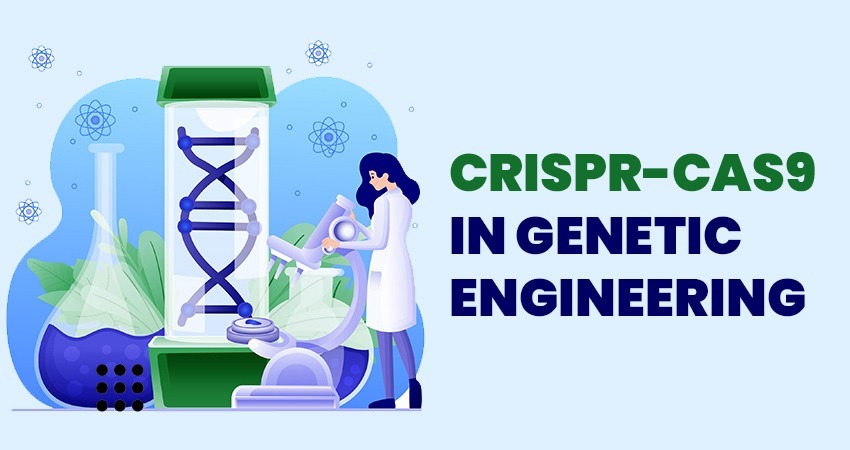
Genetic engineering has changed the
world of science. It has made impossible things possible. At the heart of all
these advancements is CRISPR-Cas9. This tool has revolutionized the way genes
are edited. It is fast, precise, and cost-effective. But how exactly does it
work, and why is it so revolutionary? Let's explore.
What is CRISPR-Cas9?
CRISPR stands for "Clustered
Regularly Interspaced Short Palindromic Repeats." It's a naturally
occurring system in bacteria. These little guys use this mechanism to resist
viruses. In other words, it is this Cas9, which is like the molecular scissors:
the DNA would get cut off at that spot.
Scientists discovered that this system
could be applied in genetic engineering. They guide Cas9 to a specific gene and
cut or modify DNA by doing so. This has now opened doors to endless
possibilities.
How Does CRISPR-Cas9 Work?
The process is simple. First, scientists
design a guide RNA (gRNA). This RNA is complementary to the DNA sequence they
wish to target. The guide RNA guides Cas9 to the targeted site in the genome.
Once at the site, Cas9 cuts the DNA.
After the cut, the cell repairs the DNA.
Scientists can manipulate this repair. They can delete, modify, or insert
genes. This makes CRISPR-Cas9 so powerful.
Applications of CRISPR-Cas9
CRISPR-Cas9 is not only a scientific
tool. It is the solution to many real-world problems. Its applications are
vast, from healthcare to agriculture and even environmental science.
1. Medicine
CRISPR is a game-changer in medicine.
Scientists use it to treat genetic diseases such as sickle cell anemia and
cystic fibrosis. These diseases result from faulty genes. CRISPR can correct
these errors at the DNA level.
CRISPR also holds promise in cancer
research. By editing immune cells, scientists can enhance their ability to
fight tumors. This is already being tested in clinical trials.
2. Agriculture
The agricultural industry has greatly
benefited from CRISPR. Crops can now be engineered to resist pests and
diseases. They can also be made more nutritious and better suited to changing
climates.
For instance, CRISPR has been used to
develop fungal-resistant wheat. It has also enhanced the yield and quality of
rice.
3. Environmental Science
CRISPR is also helping solve
environmental problems. Scientists are researching its application in
eradicating invasive species. Others are using it to minimize the carbon
footprint of industries.
For example, scientists are engineering
algae strains that absorb more carbon dioxide. This can significantly reduce
greenhouse gases.
The Advantages of CRISPR-Cas9
Why has CRISPR-Cas9 been in the
spotlight? For good reason:
● Accuracy: CRISPR locates and identifies
specific genes with high precision.
● Speed: The process is quicker than the traditional genetic engineering methods.
● Cost-Effectiveness: It is less expensive,
thereby increasing its reach among researchers.
It can be used in almost all fields of
science.
Ethical Issues
Despite the benefits, CRISPR-Cas9 raises
ethical concerns. The use of human embryos for editing is a controversial
issue. Many are concerned about its misuse, such as creating "designer
babies."
There are also concerns about unintended
edits. CRISPR is precise, but off-target effects can occur. Scientists are
working hard to minimize these risks.
Governments and regulatory bodies play a
crucial role here. Clear guidelines are essential to ensure ethical use.
The Future of CRISPR-Cas9
The potential of CRISPR-Cas9 is endless.
Researchers are trying to make it even more accurate. They are also studying
its application in space. Imagine editing genes to grow crops on Mars!
In the next years, CRISPR may end genetic
diseases. It can produce crops that feed the world. It can even reverse
environmental damage.
A Resource for Aspiring Engineers
If you are interested in such
revolutionary technologies, the good news is there for you. Engineer's Heaven is
a great place where your inquisitiveness would be fueled.
Go to Engineer’s Heaven for such great
articles and resources. It is a hub for education and innovation. Whether you
are a student or a professional, the platform provides something for everyone.
You will get updates on emerging
technologies such as CRISPR. You will learn more tools to improve your skills
also.
(Disclaimer: This statistics could be different in different part of World and Different timeline. this statistics has been generated based on data available till 2025 or relavant time span.)

The advent of 5G networks is changing industries around the globe. The pace at which this revolution is happening doesn't spare electrical engineering. With quicker speed, lower latency, and greater connectivity, 5G will transform how electrical systems are designed, developed, and managed. It affects industries and individuals alike. Here, engineers are at the center of this revolution, solving new challenges and seizing unprecedented opportunities.
What Makes 5G Different?
5G is a fifth generation network. This is
significantly far superior than any predecessor. It operates nearly 100 times
faster than 4G. Latency or delay has come down to the order of just
milliseconds. Communication in real-time is what comes from it. More devices
connect simultaneously without a sense of congestion.
These features make 5G a network that
transcends the wireless mobile network. It is the base for smart cities,
autonomous cars, and the Internet of Things. Electrical Engineering, therefore,
contribute significantly to this innovation.
5G and Circuit Design
The high frequency of 5G signals requires
advanced circuit designs. Traditional circuits are not sufficient for these
frequencies. Electrical engineers must design high-speed circuits. They must
also ensure energy efficiency. These designs require precision and expertise.
Heat dissipation and electromagnetic
interference are challenges in 5G. Advanced materials, such as GaN, are used in
circuits to improve performance and durability. They are continuing to break
the records of electrical engineering.
Infrastructure
5G has the potential to form a very dense
network. It demands a lot of infrastructure. This is not feasible with
traditional cell towers. Small cells are necessary to address the gaps in the
network. Small cells include compact antennas installed on buildings, poles,
and even streetlights.
Electrical engineers design and deploy
these systems. They ensure smooth integration with existing infrastructure.
Power management is critical for these systems. Engineers develop innovative
power solutions for uninterrupted connectivity.
The Emergence of Smart Grids
5G networks enable smart grids. These are
advanced electrical grids with real-time data communication. Smart grids
monitor energy flow and optimize consumption. They can even predict outages and
respond instantly.
The grids will be designed by electrical
engineers. They design sensors and control systems. They also make it reliable
and scalable. With 5G, smart grids are more efficient and sustainable.
Impact on IoT Devices
5G accelerates the growth of IoT. IoT
devices, like smart thermostats and sensors, rely on constant communication. 5G
makes this possible with low latency and high bandwidth.
These devices' hardware gets designed by
electrical engineers. They have major concerns with miniaturization, energy
efficiency, and connectivity. Exponential in numbers will be the number of
devices as 5G unfolds. Solutions for engineers are to innovate in the future.
Automation and Robotics
5G networks support automation and
robotics. The connected robots can now be used in factories for the performance
of tasks in real-time. Autonomous vehicles use 5G for navigation and for
safety.
Control systems for such applications are
designed by electrical engineers. The systems have to be efficient and
accurate. It means that with 5G engineers can take automation to the next
level.
Challenges for Engineers
This is the case because the 5G
revolution is not without its fair share of challenges. Security threats are
something that has to be dealt with by engineers. While the networks expand, so
does the risk. Security engineers are required to design systems that will
safeguard data and devices.
Another is sustainability of the 5G
infrastructure: the latter requires energy. Designers have to develop work that
is energy efficient. The integration of renewable energy is the answer.
Last but not the least, there is a demand
for engineers with the skills. It is very important for engineers to remain
informed on the latest technologies and advances.
Chances in Electrical Engineering
The effect of 5G is bringing great
opportunities. Electrical engineers are much sought after in the industry.
Telecommunication, health care and manufacturing sectors have recruited
engineers for the 5G technology development Engineers also have the chance to
work in research and development section. They are coming up with future
technologies such as 6G and even beyond. In the case of young engineers, it is
an exciting period. Electrical engineering is dynamic in nature. Somebody has
to gain new knowledge and skills.
Remember, Engineer’s Heaven is the online community for passionate engineers which is undoubtedly one stop destination for all your queries. Here you will find all the resources you need to help you on your engineering endeavor. Featuring blogs, vidoes, questionnaires and tutorials to a forum and more, Engineer’s Heaven provides you with the information and resources you need to succeed in your chosen profession.
(Disclaimer: This statistics could be different in different part of World and Different timeline. this statistics has been generated based on data available till 2025 or relavant time span.)
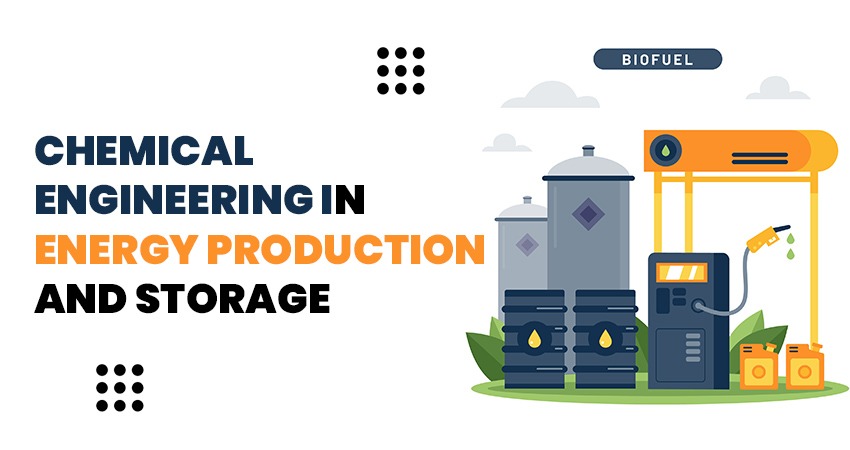
Energy is the backbone of modern society. Every sector, from transportation to technology, relies on it. Yet, producing and storing energy efficiently is a constant challenge. This is where chemical engineering steps in. It bridges science and technology to create solutions for energy production and storage.
Energy production is complex. It entails converting raw
materials such as coal, natural gas, or biomass into usable energy. Chemical Engineers make sure this process is efficient and sustainable.
One major contribution lies in the development of cleaner
fuels. Traditional fuels such as coal emit harmful emissions. Chemical
engineers are working to reduce these emissions through innovative techniques.
They design systems that capture carbon dioxide before it enters the
atmosphere.
Chemical engineers are excellent in another area:
renewable energy. To enhance efficiency, wind and solar energy rely on advanced
materials, and chemical engineers develop these. For instance, they create a
better coating for the solar panels so that more sunlight is captured.
Hydrogen energy is also getting attention. Hydrogen is a
clean energy source, but its production can be difficult. Chemical engineers
develop processes to make hydrogen production more efficient. That includes
innovations in electrolysis and fuel cells.
The
Role in Energy Storage
Energy production is just one side of the coin. The other
side is storage. Renewable energy systems cannot work without proper storage.
Flow Batteries: Flow batteries are large-scale batteries,
primarily ideal for storing renewable energy. Chemical engineers design fluids
that store energy in these systems.
Another focus is thermal energy storage. It involves
storing heat from the sun or industrial processes. Chemical engineers develop
materials that retain this heat for long periods. These systems are very
important in balancing energy supply and demand.
Sustainability
and Environmental Impact
Chemical engineers are at the forefront of sustainable
energy solutions. They focus on reducing waste and minimizing environmental
impact.
Recycling is another input of chemical engineering.
Valuable materials in these batteries and panels are being reclaimed by
chemical engineers. Sustainability for energy systems follows this recycling
strategy.
Future
Prospects in Energy Engineering
Chemical engineering holds the key to the future of
energy. Each day sees a new emergence of technology. These technologies, made
practical, have been driven into reality by chemical engineers.
AI is the recent addition in the energy systems. The
chemical engineers optimize the process through AI. The efficiencies are
enhanced with reduced cost.
Another breakthrough is nanotechnology. This is working at
the atomic level with materials. Chemical engineers utilize nanotechnology in
developing improved catalysts. The catalysts speed up chemical reactions in the
generation of energy.
Fusion energy is on the horizon, too. It imitates the
generation of energy by the sun. Chemical engineers are striving to make this
energy a reality. It can generate unlimited clean energy in the future.
Why
Engineers Heaven is Your Best Resource
If you’re passionate about chemical engineering, visit the og. This website is a hub for engineers and aspiring professionals. It offers valuable resources for understanding energy systems and beyond.
Engineer’s Heavenprovides easy-to-read articles on cutting-edge technologies. It also offers practical tools for students and professionals. Whether you’re researching fuel cells or battery storage, this site has you covered. It also links you to the world community of engineers. Share your ideas with other engineers, learn from the best minds, and enjoy your life on the go with Engineers Heaven as more than just a resource.
(Disclaimer: This statistics could be different in
different part of World and Different timeline. this statistics has been
generated based on data available till 2025 or relavant time span.)
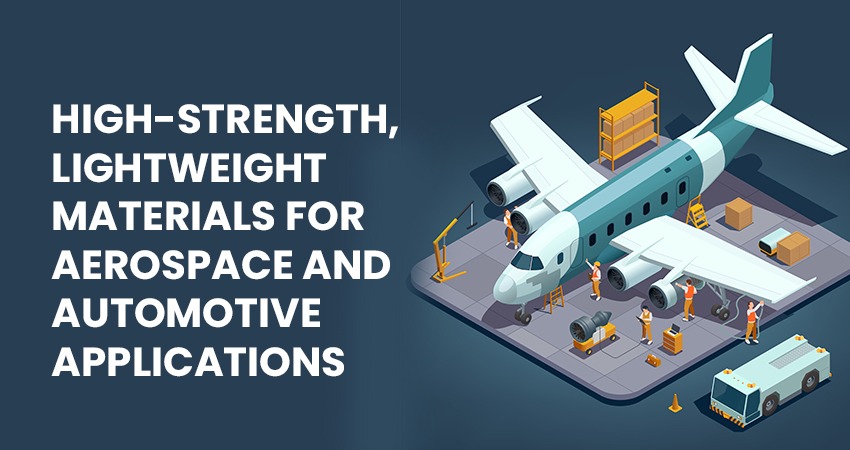
There has never been such a high demand
for efficient, durable, andlightweight materials in aerospace and automotive
industries. Industries are pushing the boundaries of materials engineering to
meet performance, safety, and environmental standards. The result? Advanced
materials that are stronger, lighter, and more versatile than ever before. For
more details about advanced engineering, visit Engineers Heaven.
Why Do
Lightweight Materials Matter?
Weight saving is important for both
aerospace and automotive industries. Vehicles that are lighter in weight
require less fuel, which saves them from increased emission. An aircraft with
components lighter in weight would have a larger payload and greater distances
to be traveled.
However, safety necessitates that these
materials be sufficiently strong. This balance between strength and weight is
the high pressure driving innovation in materials engineering.
New Lightweight
Materials
●
Carbon Fiber
Composites
Carbon fiber composites are changing both
markets. They are extremely strong and lightweight. Five times stronger than
steel, they weigh much less.
Carbon fiber is used widely in aerospace
applications, such as wings, fuselage, and interiors. In automotive
applications, it is suitable for sports cars and electric vehicles. Its cost is
too high, but its benefits are worth the cost.
●
Aluminum Alloys
Aluminum alloys are famous for their
strength-to-weight ratio. Aluminum alloys are widely used in the frames of
automobiles and aircraft structures.
It is also corrosion-resistant and
recyclable material, hence, sustainable. Recent advancements have further
improved its tensile strength to make it more appropriate for high-performance
applications.
●
Titanium Alloys
Titanium alloys are lighter than steel
and equally strong. Offering exceptional resistance to heat and corrosion, this
makes them perfect for aerospace components like jet engines and landing gear.
While costly, scientists are trying to
reduce the cost of production. This will increase its application in automotive
manufacturing in the near future.
●
High-Performance
Plastics
High-performance plastics, including PEEK
and PPS, are becoming increasingly popular. These materials are lightweight,
strong, and resistant to extreme temperatures.
They are used in everything from fuel
systems to electrical components. In aerospace, they reduce weight without
compromising safety.
●
Metal Matrix
Composites (MMCs)
Metal matrix composites are a combination
of metals with ceramic or other reinforcements. These materials provide better
strength and thermal properties.
MMCs are highly useful in engines and
braking systems. They have high stress and temperature resistance, making them
reliable.
Manufacturing
Techniques Driving Innovation
Advanced materials development is not
just about the materials themselves. Manufacturing techniques play a
significant role.
Additive
Manufacturing (3D Printing)
Additive manufacturing is useful for
precise designs and less material waste. It is suitable for the production of
complex components made from lightweight materials.
Aerospace companies use 3D printing for
engine parts and structural components. Automakers are using it for custom and
low-volume production.
Advanced Forging
and Casting
New forging and casting techniques
enhance material properties. The methods increase strength, reduce defects, and
increase efficiency.
Titanium and aluminum components are
usually produced with these advanced methods.
Nanotechnology
Nanotechnology: Transforming Materials on
the Molecular Scale
Materials are improved in terms of
strength, weight, and durability.
Carbon nanotubes and graphene are only
two amongst this technology that is often used in composites for applications
in aeronautics and automotive areas.
Challenges and
Future Directions
Achievements notwithstanding, there
remain plenty of challenges. One of the main challenges is the cost,
particularly with a material like carbon fiber and titanium. Innovation is
necessary to reduce the cost of producing these materials.
Sustainability is the other area.
Recycling lightweight material is challenging, but it needs to be done because
waste should be minimized. Work is being done on making them greener.
Future developments would likely be in
hybrid materials. They take the best from two different materials. Hybrid
composites could thus be a merger of carbon fiber's strength with metals'
flexibility.
Materials engineering is an
ever-evolving field. Staying updated with the latest advancements is crucial
for engineers, researchers, and enthusiasts.
For more resources, articles, and expert
insights, visit Engineer’s Heaven It is your one-stop platform for everything
engineering. Whether you are a student, professional, or innovator, Engineers
Heaven has something for you. Join a community that values progress,
innovation, and learning.
(Disclaimer: This statistics could be different in different part of World and Different timeline. this statistics has been generated based on data available till 2025 or relavant time span.)

The
Internet of Things (IoT) has transformed the digital world. From smart homes to
connected vehicles, IoT devices are everywhere. These devices make life
convenient, but they also introduce risks. Security is one of the biggest
challenges in IoT. Without proper protection, these devices become easy targets
for hackers. This blog will explore secure communication protocols that protect
IoT systems.
Visit
Engineers Heaven, the ultimate website for engineering solutions and
innovations, for professional advice and resources regarding Security Engineering
The Significance
of IoT Security
IoT
devices are small in size but high in power. They are collecting, sharing, and
processing data all the time. The interconnectivity also leaves them open to
vulnerabilities. A hacker may identify the weak links of the system. Breaches
could result in data theft, device malfunction, or loss of system control.
This
is where secure communication protocols come in. They ensure safe data
transmission between devices. Let's see some protocols that support IoT
security.
Top Secure
Communication Protocols for IoT
1. Transport
Layer Security (TLS)
Transport
layer security is perhaps the most utilized protocol. It keeps data encrypted
during transmission, thereby ensuring it is unintelligible to observers.
Many
websites and apps employ TLS on their sites.
In
IoT, TLS protects data exchange between devices and servers; encryption is done
using a combination of public and private keys that do not allow unauthorized
access to sensitive information.
2. Datagram
Transport Layer Security (DTLS)
DTLS
can be considered as an extension to TLS. It functions with the user datagram
protocol. In this way, it is faster and ideal for devices with limited
resources in IoT.
DTLS
guarantees security communication without sacrificing speed. It is helpful in
devices such as sensors and smart meters.
3. Message
Queuing Telemetry Transport (MQTT)
The
MQTT is a light protocol. It is developed for devices of low bandwidth. Despite
its simplicity, MQTT offers some built-in security features .
By
applying TLS, MQTT guarantees that communication will be over an encrypted
channel. Authentication also uses methods that verify devices so that no
unauthorized entity has access to the system.
4. Constrained
Application Protocol (CoAP)
CoAP
is another lightweight protocol. It is optimized for devices with limited power
and memory. CoAP works well in resource-constrained environments.
CoAP
integrates DTLS for secure communication. This ensures that even small IoT
devices remain protected.
5. Internet
Protocol Security (IPsec)
IPsec
is a robust protocol suite. It works at the network layer to secure data. IPsec
encrypts and authenticates all IP packets during transmission.
IoT
networks benefit from IPsec's end-to-end security. It ensures safe
communication between devices, servers, and users.
Key Features of
Secure IoT Protocols
●
Encryption: Data becomes impossible to read for the unauthorized.
●
Authentication: Verification of the identity of the device and user.
●
Integrity: Data will not be modified during the transit.
●
Low Resource Consumption: Suitable for devices with power and memory.
Focusing
on these features, the security of IoT systems can be strong.
Challenges in
Securing IoT Devices
●
Limited Resources: Most of the IoT devices have low processing power
and memory. This hinders the development of complex security measures.
●
Diverse Ecosystem: IoT is a broad field of devices. It is very
challenging to maintain compatibility between the devices.
●
Scalability: As the number of devices increases, it is hard to
maintain security.
●
Cost: High-level security measures may be costly. This is an issue for
the manufacturers and customers.
Best Practices
for IoT Security
Use
Secure Protocols: Always implement protocols like TLS, DTLS, or MQTT.
●
Regular Updates: Keep device firmware and software updated.
●
Authentication: Use strong passwords and multi-factor authentication.
●
Monitor Traffic: Analyze data traffic to detect unusual activity.
●
Educate Users: Make users aware of basic security practices.
These
steps ensure long-term security for IoT systems.
Role of Engineers
in IoT Security
Engineers
are the first-line developers of IoT. They design devices, networks, and
systems that need to be secure. To do so, they need to know protocols and
security practices.
For
engineers who want to increase their knowledge, Engineers Heaven is a great
place to visit. The platform gives expert insights, tools, and tutorials. Keep
updated with the latest in engineering and technology trends.
Conclusion
Secure
communication is the future of IoT. Protocols like TLS, DTLS, MQTT, and CoAP
are important. They safeguard data and enable devices to work. Still, there are
resource constraints and scalability issues.
Security
has to be the prime focus of the engineer and developer at every stage. Best
practices followed and robust protocols can help them create safer IoT systems.
For
more professional resources, visit Engineer’s Heaven. Empower your engineering
journey with reliable tools and insights. Secure your IoT systems today and
build a safer tomorrow.
(Disclaimer: This statistics could be different in different part of World and Different timeline. this statistics has been generated based on data available till 2025 or relavant time span.)
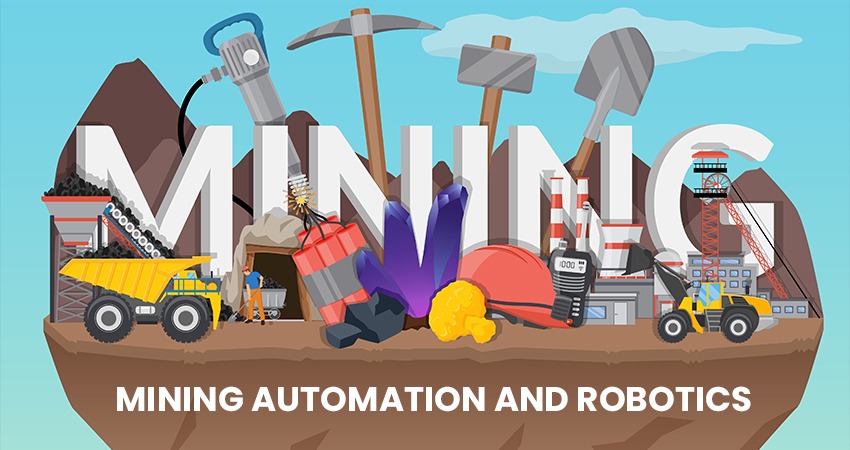
Mining is one of the industries that has
significantly changed in the past few years. Automation and robotics are some
of the significant changes. All these have dramatically changed the ways in
which we explore, extract, and process minerals. The Mining and Geological Engineering are not as it was; it involves much more high technology.
In this blog, we are going to discuss how
automation and robotics are revolutionizing mining. We are going to look at how
these advancements contribute to safety, efficiency, and sustainability. For
more topics related to engineering, visit Engineers Heaven.
Role of
Automation in Mining
Automation has revolutionized mining,
changing traditional ways of doing things. Many things that were done manually
are now carried out by machines. Drilling, loading, and hauling are performed
with great accuracy by automated systems. It means less human error and more
efficiency.
The foremost advantage of automation is
safety. Mining is a dangerous industry. Workers are exposed to cave-ins, gas
leaks, and equipment malfunctions. Automated systems reduce the human presence
in dangerous areas. This reduces accidents and saves human lives.
Automation also improves productivity.
Machines work faster and longer than human beings. They do not get tired like
humans do, and they can work in harsh conditions. It means greater output and
reduced operational costs.
Robotics in
Mining Operations
Robotics is another game-changer in the
mining sector. Robots can perform complex tasks with unmatched accuracy. From
exploration to mineral extraction, robotics has applications across the value
chain.
Robotic drills, for example, can
precisely target mineral deposits. This reduces wastage and maximizes resource
utilization. Robots are also used for underground mapping. They provide
detailed data about geological structures. This helps engineers plan operations
more effectively.
Autonomous vehicles are another
innovation. Self-driving trucks deliver materials within mines with no human
input. They carry various sensors and cameras to help navigate. They are not
only efficient but also friendly to the environment.
Advantages of
Automation and Robotics in Mining
1. Reduced Risk
Being a mining job, it's one of the
hazardous professions. Automation and robotics eliminate the workers from
dangerous sites. They replace the jobs that many see as highly risky, thus
protecting human life.
2. Increased Efficiency
Machines work faster and with more
precision than humans. It optimizes the process, decreases delays, and
increases productivity.
3. Cost savings
The technology investment is a one-time
big investment, which pays off later. Automated systems cut down labor cost and
minimize the inefficiency of operational processes.
4. Environmental Advantage
Modern machines are designed in such a
way that they can minimize the damage to the environment. Robots and automated
systems cut down energy consumption and waste production.
Difficulties in
Implementation of Automation and Robotics
Despite the advantages that automation
and robotics bring to the mining industry, there are challenges with its
adoption. The cost of advanced technology is a major limitation. Many firms are
reluctant to spend money on pricey equipment.
There is also a need for skilled workers.
The knowledge required to run and maintain an automated system requires
specific expertise. Training workers on new technologies will be necessary.
There are regulatory constraints too.
Mine owners need to abide by norms on safety and environment. Innovation of new
technologies always goes alongside strict rules.
The Future
Mining seems optimistic for the future
too. Technology could further facilitate accessibility to automation and
robotics. Its significant roles can be attributed to artificial intelligence,
and machine learning will make such systems learn to change with experience
over time.
Sustainability will also drive
innovation. The trend will be more towards eco-friendly practices. Robots and
automated systems will minimize carbon footprints from the industry.
Development Collaboration between these
technology providers and mining companies is going to be critical. Partnerships
will accelerate the adoption of advanced solutions. This will therefore lead to
a safer, more efficient, and sustainable mining industry.
Read More at Engineer’s Heaven, To shape
the future of mining, automation and robotics provide some of the industry's
biggest solutions. It's about improving safety, making tools more effective,
and boosting productivity.
.jpeg)
Cities
sizzle during scorching summer months. Urban areas have a phenomenon called the
urban heat island effect, where temperatures shoot up much higher than the
surrounding rural areas. This significant temperature difference is caused by
several factors, including extensive use of concrete, asphalt, and other
heat-absorbing materials. These materials trap solar radiation, releasing it
back into the atmosphere as heat, which intensifies the urban heat island
effect.
Fortunately,
a thriving solution exists for this urban menace: green roofs. A rooftop
partially or totally covered with vegetation, a green roof brings much
environmental and economic good to any urban location, including mitigating
urban heat islands.
How Do Green
Roofs Mitigate Urban Heat?
The
green roof functions by the natural process of evapotranspiration. Water
absorbed through the roots of plants is released through the leaves of the
plants into the atmosphere in the form of vapor. It cools just like how the
human body does through sweating.
A
two-pronged attack on the urban heat island:
●
Reduced Absorption of Solar Heat: Since green roofs possess
vegetation, that would have absorbed the sun if it had occurred on an average
rooftop. Hence, there is a diminished amount of radiant heat into the ambient
atmosphere.
●
Evapotranspiration in Cooling: Already discussed, the fact that plants
allow for evapotranspiration for temperature regulation contributes to this
cooling action. Lush greenery covering green roofs produces a huge quantity of
evapotranspiration effect.
The Measurable
Effect of Green Roofs
Studies
have conclusively shown that green roofs reduce urban heat islands. Some of the
examples include:
●
Ambient Air Temperature Reduction: Green roofs can lower ambient air
temperatures by 2-6 degrees Celsius in cities.
●
Energy Savings: Green roofs reduce the cooling effect and subsequently
reduce the energy consumption in buildings. Studies show that green roofs
decrease the need for air conditioning by 20-50%, thereby saving a lot of
energy.
●
Beyond Temperature Reduction: The Holistic Benefits of Green Roofs
The
benefits of green roofs go much beyond mitigating urban heat islands. A green
roof has a whole combination of environmental benefits and economic advantages:
●
Improved Air Quality: Green roofs act as natural filters absorbing air
pollutants and emitting clean oxygen. With this, air quality in urban areas
improves.
●
Enhanced Stormwater Management: Green roofs absorb rainwater, reducing
stormwater runoff and lessening the burden on drainage systems.
●
Habitat Creation: Green roofs provide valuable habitat for pollinators
such as bees and butterflies, promoting biodiversity in urban environments.
●
Increased Building Insulation: The vegetation layer on green roofs
acts as an insulator, reducing heat transfer in both summer and winter. This
can contribute to lower energy bills throughout the year.
●
Elegance: Green roofs can transform the dull, dead rooftops into green
spaces that add a vibrancy to an otherwise dreary urban landscape.
Thinking of
installing a Green Roof?
If
you are interested in green roofs and think it might work for your building,
here are some resources to get you started:
Engineer’s Heaven: This website is a good source for engineers and building professionals
of Environmental Engineering. It
gives a comprehensive overview of green roofs, including design considerations,
construction techniques, and maintenance requirements.
Investing in a
Sustainable Future Greenroofs are among the most feasible solutions to overcome the urban
heat island challenge. We can then create cooler and more sustainable cities
with improved air quality, stormwater management, and biodiversity, all by
making use of natural power. We should embrace green roofs and open the way
toward a greener, healthier future for our urban areas.
(Disclaimer: This statistics could be different in different part of World and Different timeline. this statistics has been generated based on data available till 2025 or relavant time span.)
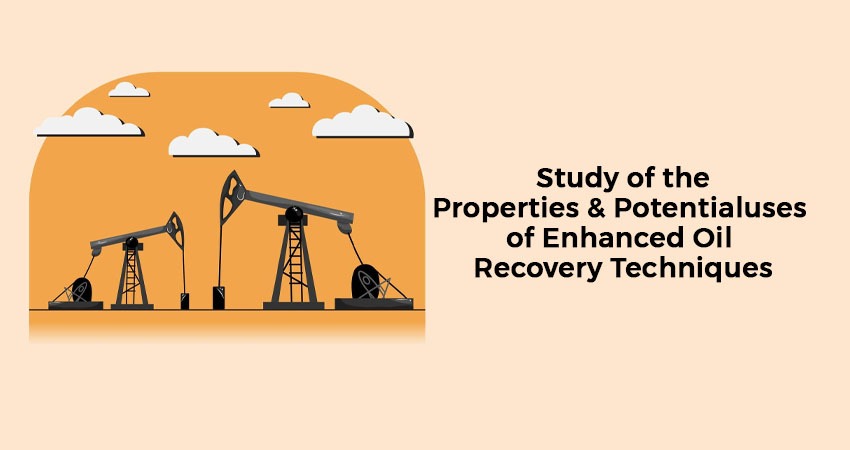
The
petroleum industry is continually evolving. In a world where energy
requirements are on the increase, traditional oil extraction techniques just do
not cut it. Enter Enhanced Oil Recovery, or EOR. This is a niche suite of
techniques meant to extract as much oil as possible from reservoirs that the
original methods would otherwise fail to access. This blog looks into the
properties and possible applications of EOR. If you are an enthusiast of all
things petroleum engineering, read on for access to an exciting field.
What
is Enhanced Oil Recovery?
Enhanced
Oil Recovery, or EOR, is a term used for advanced techniques in recovering oil left
behind by traditional extraction methods. Typically, standard primary recovery
techniques recover only about 10-20% of the oil within a reservoir. Secondary
techniques, such as water flooding, recover 30-50%. However, EOR can increase
recoveries to as high as 60% and more.
EOR
methods focus on residual oil trapped in the reservoir. The techniques change
the physical or chemical properties of the oil, thus making it easier to
extract.
Key
Properties of Enhanced Oil Recovery Techniques
1. Thermal Techniques
Thermal
EOR techniques involve injecting heat into reservoirs. This lowers the
viscosity of the oil, hence it can flow freely.
●
Steam Flooding:Steam injection
heats the oil, making it thinner.
●
Cyclic Steam
Stimulation:Steam is injected, allowed to soak, and then extracted with the oil.
●
In-situ
Combustion:Oxygen is injected, causing the oil to burn, generating heat.
Thermal
techniques are particularly effective for heavy oil reservoirs.
2. Gas Injection
Gas
injection is another EOR method. Gases like carbon dioxide (CO2) or natural gas
are injected into the reservoir. These gases mix with the oil, reducing its
density and surface tension.
●
CO2 Injection:This technique
is in vogue because it has the advantage of both oil recovery and carbon
sequestration.
●
Hydrocarbon Gas
Injection:Natural gas is injected to maintain the pressure in the reservoir and enhance
the flow of oil.
Gas
injection is effective in light to medium oil reservoirs.
3. Chemical
Injection
Chemical
EOR is the injection of chemicals into the reservoir. These chemicals alter the
properties of the oil or enhance the effectiveness of water flooding.
●
Surfactants:They decrease
the surface tension between oil and water.
●
Polymers:They increase
the viscosity of water to sweep oil more efficiently.
●
Alkalines:They react with
minerals in the reservoir to form surfactants in-situ.
This
is used if the rock formations are complex.
Application
of Enhanced Oil Recovery
EOR
brings about a revolution in the oil and gas industry. Here are some of the
applications of the same.
1. Effective
Production of Oil:EOR boosts significantly the volume of oil recoverable. Once
depleting, depleted fields now turn out productive again. It is vital at this
time of depleting easy accessible reserve stocks.
2. Increased Life
for Reservoir:EOR gives additional working life to an oil reservoir. It will add
oil recovered and do not drill additional wells, saving on operational and
environmental fronts.
3. Carbon Capture
and Storage (CCS):EOR techniques like CO2 injection serve a dual purpose. They enhance
oil recovery and act as a form of carbon sequestration. Injecting CO2 into
reservoirs helps reduce greenhouse gas emissions.
4. Energy
Security:By maximizing oil recovery, EOR helps nations achieve energy security. It
reduces dependence on imports by making domestic reservoirs more productive.
5. Economic
Growth:Increased oil recovery results in increased income for oil companies and
governments. It provides employment and stimulates technology development in
the petroleum industry.
Challenges
of EOR
EOR,
however, has its challenges
●
High Costs:The cost of
investing in EOR is high. The cost of generating steam, chemicals, or CO2
injection can be high.
●
Environmental
Problems:Thermal processes consume energy. Chemical injections also pose environmental
problems if not well managed.
●
Technical
Complexity:EOR projects need advanced expertise and precise execution.
Why
EOR Matters for Future Energy Needs?
The
global demand for energy is expected to rise. Renewable energy sources are
growing but cannot fully replace oil and gas in the near term. EOR provides a
way to maximize existing resources while new energy technologies mature.
Another
point is that EOR aligns with sustainability goals. Techniques such as CO2
injection aid the industry in reducing carbon footprints. As technology
advances, EOR is likely to become both economic and environmental-friendly.
Find
Out More About Petroleum Engineering
If
you are passionate about petroleum
engineering and energy technologies, you must keep updated. The industry is
fast moving and requires professionals to be abreast of the new trends and
methods.
For
in-depth resources, guides, and tools, visit Engineer’s Heaven. It is the hub
for all engineering enthusiasts providing valuable insights, learning
materials, and community support. It caters to every student or professional.
Conclusion
Enhanced
Oil Recovery is one of the critical components of petroleum engineering. Its
methods provide novel approaches to extract additional oil, increase the
reservoirs' lifetimes, and contribute to the sustainable objectives. Knowledge
of its properties and potential applications may unlock many great
opportunities in the energy field.
(Disclaimer: This statistics could be different in different part of World and Different timeline. this statistics has been generated based on data available till 2025 or relavant time span.)
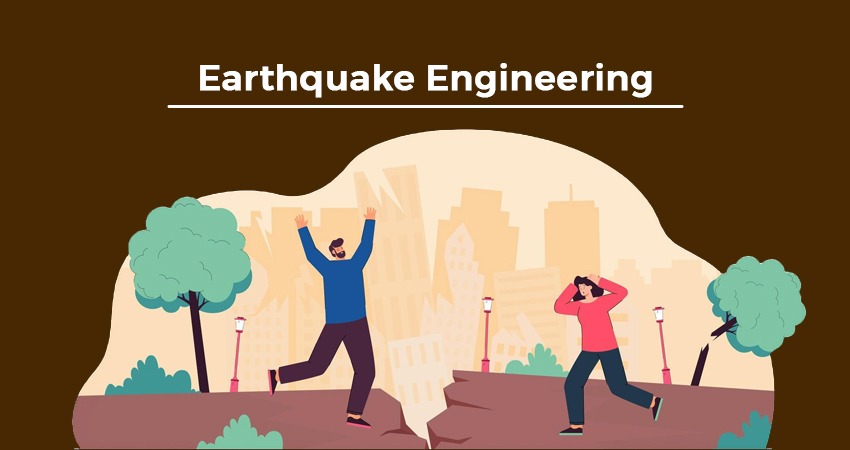
Earthquake
engineering is one of the most important fields of structural engineering. It
aims to design buildings and infrastructure that can withstand seismic events. Earthquakes
are unique challenges for engineers. They are unpredictable, destructive, and
test the very limits of design. Addressing these challenges requires skill,
creativity, and cutting-edge knowledge.
Understanding
Earthquake Engineering
Earthquake
engineering deals with understanding how structures behave during seismic
activity. Unlike other natural disasters, earthquakes produce forces that work
in complex and dynamic ways. Buildings have to resist both vertical and
horizontal forces. If these forces are not properly managed, they can lead to
severe damage or even collapse.
The
challenge lies in predicting and controlling these effects. Engineers should
design structures to absorb, dissipate, or resist seismic energy. It's easier
said than done.
Earthquake
Engineering Problems
Uncertainty
in Seismic Activity: Earthquakes cannot be predicted. Their magnitude,
location, and frequency cannot be forecasted. This uncertainty makes the design
a complex process. Engineers use probabilistic models for estimating potential
seismic hazards. The models are useful but not flawless.
Dynamic Forces
and Vibrations:Earthquakes produce dynamic forces that cause vibrations. These
forces vary in intensity and direction. Designing for these forces is
challenging. Materials and designs must endure constant stress without failure.
Soil-Structure
Interaction:The ground beneath a structure is very important during earthquakes.
Different types of soils can either amplify or reduce seismic waves. Loose or
soft soils lead to liquefaction and buildings sink or tilt. Engineers account
for such factors in planning foundations.
Retrofitting
Challenges:Older buildings are not up to the modern seismic standards.
Retrofitting such structures is a challenge. It involves adding strength and
flexibility without changing the usability or aesthetics of the building.
Retrofitting is also expensive and time-consuming.
Material
Limitations:Construction materials, including concrete and steel, have
limitations. They can crack, bend, or break under extreme stress. Engineers
must carefully choose materials. They often combine traditional materials with
advanced ones like fiber-reinforced composites to improve resilience.
Cost Constraints:Earthquake-resistant
design can be expensive. Adding reinforcements, advanced materials, and
innovative designs increases costs. Balancing safety with affordability is a
constant struggle for engineers and stakeholders.
Code Compliance:Seismic building
codes vary across regions. Adhering to these codes can be challenging,
especially in developing countries. Updating codes to reflect the latest
research is essential but slow. Engineers must stay informed and adapt designs
accordingly.
Human
Safety vs. Structural Damage
The
main objective of earthquake engineering is saving lives. Indeed, a building
can be designed to save its occupants even when the structure has been damaged.
However, it is quite challenging to do both.
Advanced
Solutions: Despite all these drawbacks, the department of earthquake engineering
evolves with time and age. Engineers use high technologies that improve seismic
performance.
Seismic Isolation:
Base isolators
minimize the passage of seismic forces to the structure. They give the building
the capability to move independent of the ground, thus avoiding most damage.
Damping Systems: Damping systems
absorb energy from seismic events and reduce vibration. These comprise tuned
mass dampers and viscous dampers. They work well in high-rise buildings.
Smart Materials: Some materials
are new to the table, such as shape-memory alloys and self-healing concrete.
They adapt to stress and can recover from slight damage, meaning they are very
durable.
Digital Tools: Advanced software
and simulations help engineers model seismic behavior. It is high time to get
accurate insight into how these structures will perform during an earthquake.
Role of Research
and Education: Continuous research is the key to overcoming the difficulties of
earthquake engineering. Engineers require the latest studies, techniques, and
technologies. Education and professional development are just as important.
This
ensures that budding and seasoned engineers remain updated. Websites such as
Engineers Heaven are precious sources. On the website, there is an array of information,
tools, and insight to aid engineers in refining their skills while dealing with
seismic challenges effectively in Structural Engineering.
Conclusion
Earthquake
engineering is a dynamic and demanding field. It requires innovation,
precision, and dedication. The challenges notwithstanding, engineers are doing
fantastic work. By harnessing new technologies and knowledge, they are building
safer and more resilient structures.
And
indeed, for anyone interested in structural engineering, this is a great
journey. All knowledge and resources, such as the ones you'll find on Engineer’s Heaven, help achieve success in such a journey. Whether it is a student or a
working professional, this all makes the difference.
(Disclaimer: This statistics could be different in different part of World and Different timeline. this statistics has been generated based on data available till 2025 or relavant time span.)
